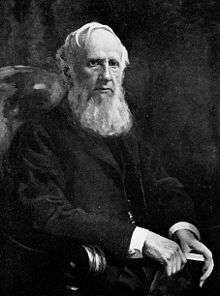Louis Adolphus Duhring


Louis Adolphus Duhring (December 23, 1845, Philadelphia – May 8, 1913, Philadelphia) was an American physician and professor of dermatology at the University of Pennsylvania. He is best remembered for having delineated dermatitis herpetiformis (also known as Duhring's disease); but he also described pruritus hiemalis ("winter itch"), and seborrheic dermatitis.
After a stint with the 32nd Regiment of Pennsylvania Volunteers in the American Civil War, Duhring enrolled at Penn's Medical School, graduating in 1867. From 1868 he continued his studies in Vienna, Paris and London, returning to Philadelphia in 1870, where he established the Dispensary for Skin Diseases. He was director of the dispensary until 1880. In the meantime he became a lecturer of dermatological diseases at the University of Pennsylvania (1871), as well as a visiting dermatologist at the department of skin diseases at Blockley Hospital (1876-1887).
In 1876 he gained his clinical professorship at Penn, becoming a full professor in 1890. In 1876 he was a founding member of the American Dermatological Association (twice serving as its president). He was the author of two major works, "Atlas of Skin Diseases" (1876–80) and " A Practical Treatise on Diseases of the Skin" (1877). The latter book established Duhring as a top authority in American dermatology.[1] He also authored the encyclopedic Cutaneous Medicine,[2] of which only two of several planned volumes were published, in 1895 and 1898.
Duhring died on May 8, 1913 due to an intestinal obstruction and resulting peritonitis.[3]
References
| Wikimedia Commons has media related to Louis Adolphus Duhring. |
- Louis Adolphus Duhring (1845-1912), University of Pennsylvania Penn Biographies